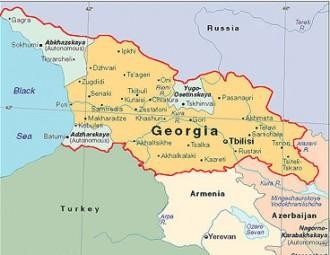Abkhazia’s acting President hopes Belarus appreciates Abkhazia’s efforts to contribute to the EEU

Messages calling for recognition of Abkhazia’s independence from Georgia have been sent to both houses of the Belarusian parliament.
Abkhazia’s acting President Valery Bganba on Thursday, August 21, called on Belarus President Aliaksandr Lukashenka to recognize the independence of his republic.
Corresponding messages have been sent to both houses of the Belarusian parliament.
“We are closely watching the integration of the Republic of Belarus, the Russian Federation and the Republic of Kazakhstan and we are hoping they will appreciate Abkhazia’s efforts to contribute to the integration processes,” ITAR-TASS quotes Bganba saying, “With time our state will participate in building the Eurasian Union,” he said.
The issue of Abkhazia’s recognition by Belarus was raised in late 2008 when Lukashenka said that the Belarusian parliament “will discuss this issue” and that “if there is the will of the people and parliament” he would sign the relevant decree.
Reference
Abkhazia, located on the north-western Black Sea coast, sought independence from Georgia since the collapse of the Soviet Union. The deterioration of relations between Georgia and Abkhazia reached its peak in the 1990s and led to armed clashes that left about 20,000 people killed. In 1994 Abkhazia adopted its own constitution and declared independence from Georgia. A referendum in 1999 supported the republic’s independence, but it was never recognized by the international community.
In early August 2008 when Georgia attacked South Ossetia, Abkhazia backed Russia’s operation to coerce Georgia to peace and asked Moscow to recognize its sovereignty. At the end of August of the same year Russia recognised the independence of Abkhazia. Later it was also recognized by such UN member states as Nicaragua (September 2009), Venezuela (September 2009), and Nauru (December 2009).
-
03.01
-
07.10
-
22.09
-
17.08
-
12.08
-
30.09










































